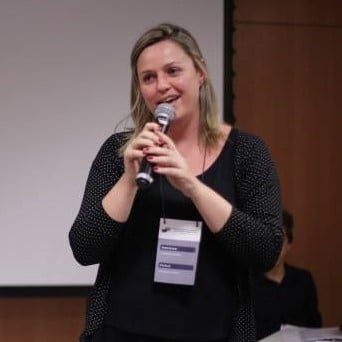Do we really want intercultural bilingual and language education in Brazil?
Interculturality is a very polyphonic word and has been used by many scholars in different ways and with diverse purposes. It is used in the Brazilian Common Core Curriculum (BNCC) which proposes an intercultural dimension and in the very recent proposal for Guidelines for Bilingual Education.
The purpose of this text is to conceptualize interculturality based on scholars who defend a critical decolonizing view of interculturality (Walsh, 2010; 2018) and to connect it with our current scenario in Brazil.
Walsh (2018) wrote in his book with Mignolo – “On decoloniality: concepts, analytics, praxis” – about the episode in which Paulo Freire’s page on Wikipedia was altered by somebody somehow related to the ultra right-wing federal government on June 28th, 2016. The author explained that among the alterations made were those, for example, that associated his Pedagogy of Liberation with Marxist indoctrination. The claim is that his indoctrination is the reason for and the basis of Brazil’s still backward and still politicized and ideologized education system. This movement intends to de-ideologize education, control curricula, and keep out of universities and schools studies on and discussions about politics, gender, sexuality, feminism, black, indigenous, and popular struggles and thoughts, and even, African-based religions. In the way I understand it, it means that any discussion about our own country, what constitutes us as a nation and who we are, would be forbidden.
Interculturality, in the scenario I have just described, is a pedagogy of re-existance, it is a response to this colonial and perverse ordering.
Firstly, it is important to understand that interculturality in this perspective is much more than an interrelation or dialogue among cultures, as our Brazilian Common Core Curriculum and the new Guidelines seem to conceive.
Walsh (2010) differentiates two types of interculturality: a functional and a critical decolonizing one. A functional view of interculturality is focused on recognizing cultural difference and diversity ultimately striving for the inclusion of different groups through tolerance and dialogue. On the other hand, a critical decolonizing view of interculturality focuses not only on the diversity as such, but, by recognizing how the difference has been constructed within a colonial framework, also serving as a “tool, process and project which is constructed by people as a demand of subalternity” (Walsh, 2010, p. 78).
According to Walsh (2018), a critical decolonizing view of interculturality calls for radical change in the dominant order and in its foundational basis. Its proposition is to transform, reconceptualize, and refound structures and institutions in ways that put in equitable relation – but still conflictive – diverse cultural logics, practices, and ways of knowing, thinking, acting, being and living. Interculturality, in this sense, suggests a permanent and active process of negotiation and interrelation in which, as already mentioned, difference does not disappear. Sociocultural, ancestral, political, epistemic and linguistic differences are affirmed and understood as contributive to the creation of new comprehensions, coexistence, solidarities and collaborations.
An intercultural education is our chance to reveal and recover our concealed histories, repressed subjectivities, subalternized knowledge systems and silenced languages. It means that, for instance, instead of discussing, in the National Guidelines for Bilingual Education which proficiency test we are going to use to verify the level of English from students and teachers, we should be discussing, as the Guidelines uses the word intercultural (but of course from a functional perspective), how bilingual education can promote social justice for our country and value the so called minorities and the ‘Epistemologies of the South’, according to Boaventura de Souza e Santos (2014). South, in this context, is not a geographical place, but a political one. They refer to everything which was left out by the Eurocentric tradition. About this concept, I have just watched one of Souza e Santos’ video classes in which he explained that he just refers to Epistemologies of the South because there are the dominant Epistemologies of the North and that he expects that one day it will make no sense to talk about Epistemologies of the South, once this distinction will no longer exist. Based on his explanation, I do expect that one day to define education as intercultural will also make no sense, because education will be, from a Freirean perspective, a way to reassert our own humanity.
I end up my text with the question from the title: Do we really want intercultural bilingual and language education in Brazil?. Besides not answering the question raised, I dare to ask other questions to go along with it: do we really want to change this perverse ordering which is responsible for the organization of our society? Do we really want a radical change in the dominant order and in its foundational basis?
References
Santos, Boaventura de Sousa. (2014). Epistemologies of the South: justice against Epistemicide. Boulder/Londres: Paradigm Publishers.
Mignolo, Walter.; Walsh, Catherine. (2018). On Decoloniality: Concepts, Analytics, Praxis. Durham and London: Duke University Press.
Walsh, Catherine. (2010). Estudios (inter)culturales en clave decolonial. Tabula Rasa, n. 12, p. 209-227.



